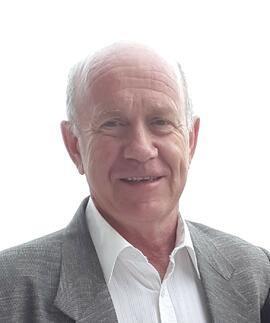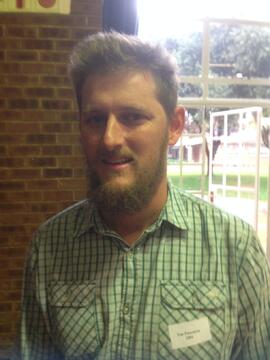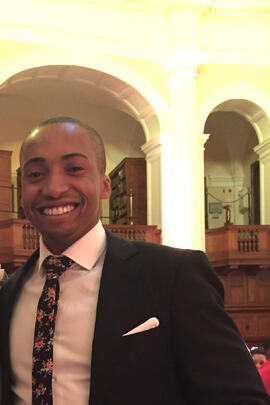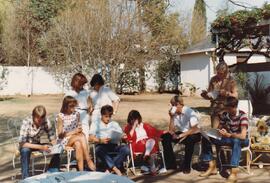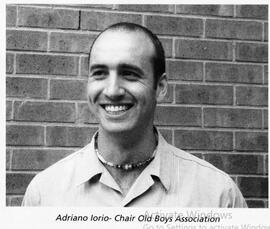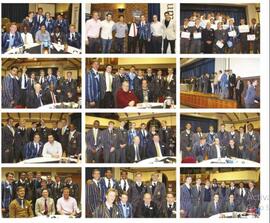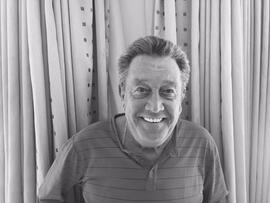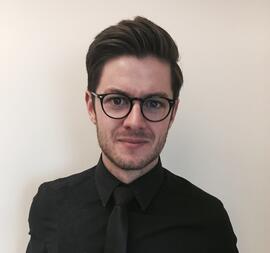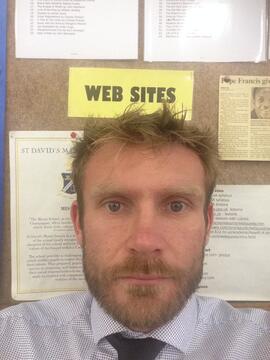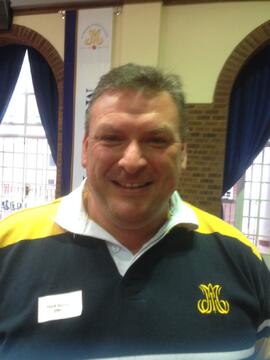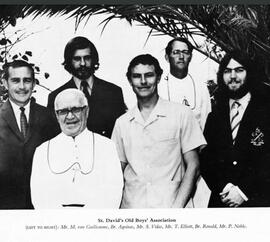- ZA ZAR STDS 202000940
- Unidad documental simple
- 2013
Interview with Sven Arp – 1980
Sven joined St David’s in 1978 going into standard 8. As his parents had divorced, Sven left St Albans as a
boarder to spend time with his mother and attend school as a day boy. He found the St David’s to be a
breath of fresh air, less regimented and the environment was more relaxed from a teacher pupil
perspective.
Brother Timothy was the headmaster, he was tough but ok. Headmasters are never popular individuals.
Sven recalls that he did something “silly” and Br Timothy told him to “think about the consequences of what
he did in life” which has somehow stuck with him ever since.
Sven played 1st team rugby, was a B team swimmer with an occasional visit to the A team but he didn’t
ever play cricket. Overall Sven enjoyed his time at St David’s with rugby matches always being auspicious
occasions; the boys were under a lot of pressure especially playing centre. Tackles were not! to be missed.
Sven considered himself a decent sportsman but no superstar.
He recalled having a blind date for the matric dance he attended in standard 9, the night did not go that well
date wise. He is vague on his standard 10 matric dance but did have a regular girlfriend at the time.
Although St David’s was and still is a great school the boys learnt to be humble and not to expect to win all
the time, even today. He feels that intense pressure amongst schools to win (which seems even worse
today) is not entirely healthy.
Of the teachers, he remembers Mrs Natrass who came right at the end, she totally lacked self confidence
but could teach amazingly well. If you took the trouble to do past papers she would get them back to you
the next day, marked with full explanatory comments. Trudie Elliott taught English and was a character in
her own right. Mr Neft, Afrikaans also a character. As a non-Catholic, Sven received separate religious
instruction from the Catholic pupils.
Academically Sven did well and was in the top 5 most of the time. He was awarded an academic tie,
honours blazer, became a prefect and won a trophy for the Maths prize.
His Grade 11 results got him into Onderstepoort, Faculty of Veterinary Science, University of Pretoria
which was fortunate as his appendix burst midway during the matric exams and he had to write supps for 4
subjects. He eventually achieved 2 A’s but would have hoped for more.
After spending 5 half years qualifying at Onderstepoort, Sven went into the army and was based in
Kangwani, Badplaas in the Eastern Transvaal. He married whilst he was in the army and on completing his
army service went into small animal veterinary work and, in 1990 started at Olivedale clinic which now
operates with a compliment of 4 vets.
Sven has two sons Reinhardt who matriculated from St David’s in 2009 and Ronan who is currently in
grade 6 at St David’s. Although it’s quite a trip every day to and from the family home in Olivedale Sven
believes it is worth it for his son to be a St David’s boy and they spend some quality time on the drive to
and from the school.
Sven does a lot of pro bono work with feral cats in the area and for the Animals in Distress organisation.
Vets are also involved in the development of individual community clinics in the Eastern Cape which is
spreading. He has no direct involvement in those but feels they are a great initiative.
Sven hosted a MOBS event at his home earlier this year (2013) The “boys” had all just turned 50 or were
about to do so, nostalgia prevailed. Brian Muller and Trevor Christie-Taylor were visiting from Australia.
Fifteen of them got together with their wives and children including George Daras (head boy) and Alphonso
de Chaud (vice head boy) who together with Gavi McLaughlin made it all the way up from Cape Town. It
was a truly special day to catch up with mates some of whom had not seen each other since the last day of
school. School friendships are of the best.
JLE October 2013
Egenrieder, Julie

